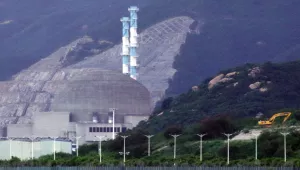How can China, the world's largest emitter, chart a path toward achieving its ambitious climate goal of net-zero emissions by 2060?
While it's impossible to predict exactly how China's decarbonization will unfold, there are a number of policies China could enact in the near-term (before 2030) that would significantly ease the country's transition to a low-carbon economy, say Daniel Schrag, Co-Director of the Science, Technology, and Public Policy Program, and Henry Lee, Director of the Environment and Natural Resources Program.
In a video for the Harvard University Center for the Environment, Schrag and Lee discuss some of the necessary reforms identified by the team of scholars behind their book, Foundations for a Low-Carbon Energy System in China (Cambridge University Press, 2021). These include optimizing electricity pricing and electricity markets, building adequate transmission to bring renewable energy to demand centers, prioritizing the deployment of charging infrastructure for electric vehicles, and creating a stringent regulatory environment for the nuclear industry, among others.
Watch the video below.
















